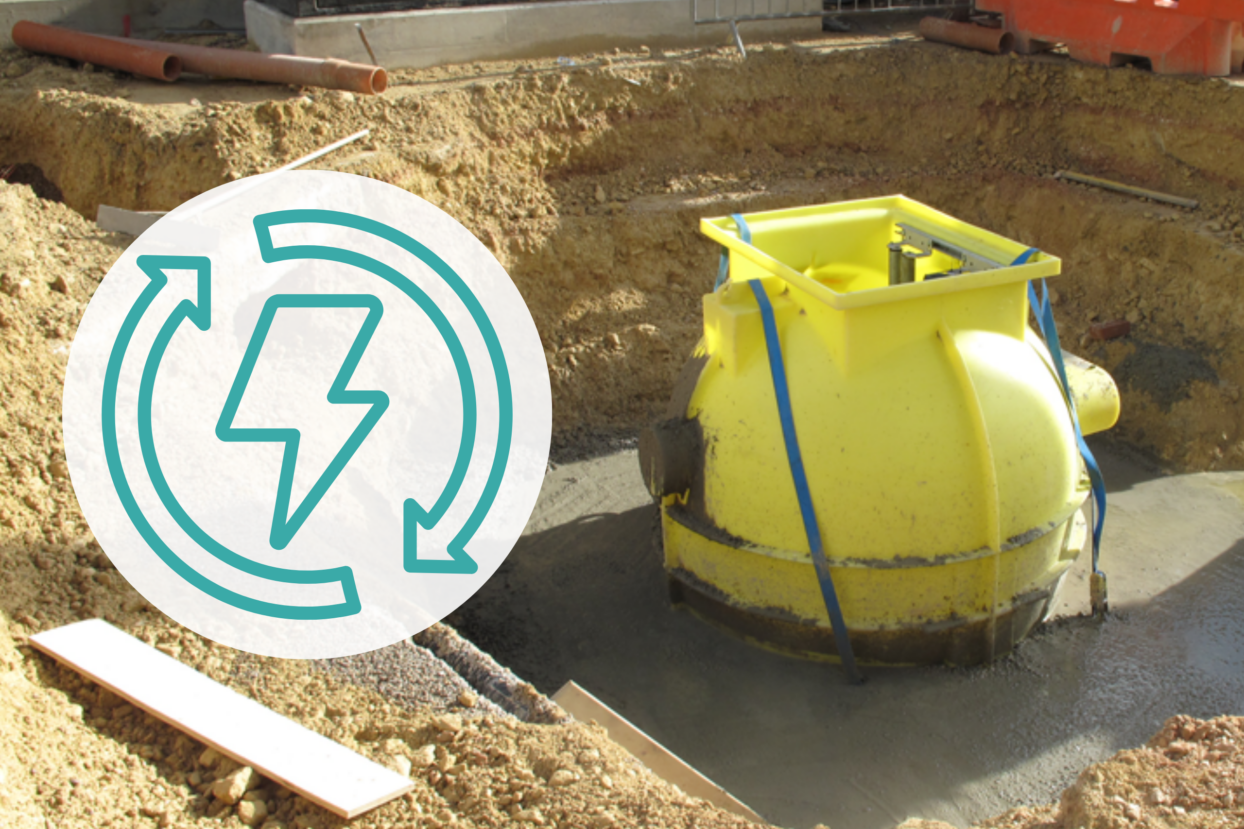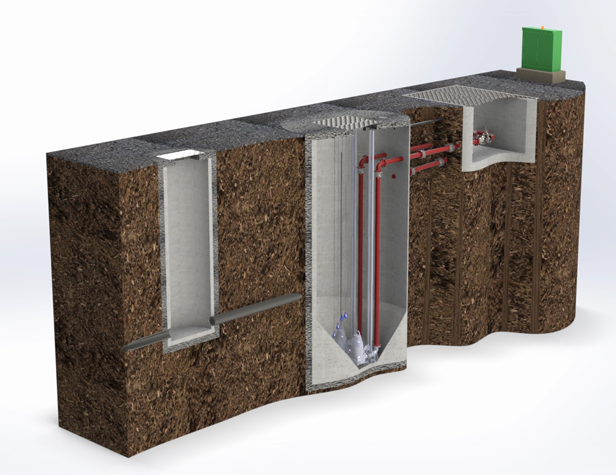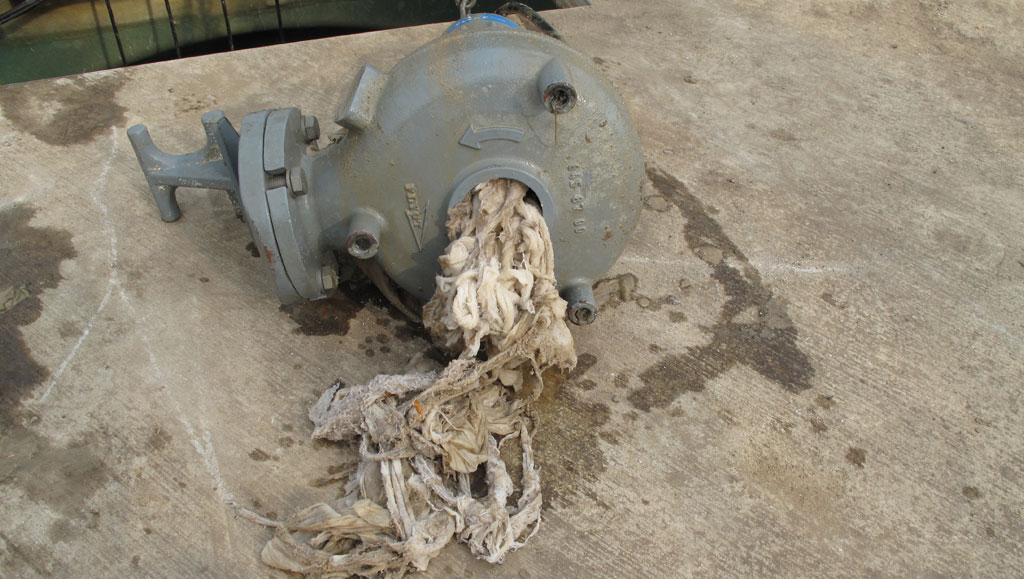Pump Products
Why Energy Efficiency Matters in Package Pump Station Design
In commercial settings, pumping stations are often out of sight—but never out of mind. Whether managing wastewater for retail parks, business units, or hospitality premises, package pump stations play a critical role in site infrastructure. In a climate of rising energy prices, increased ESG scrutiny, and growing environmental targets, energy efficiency is no longer optional.…
Read MoreThe Role of Pump Stations in Sustainable Housing Developments
As the UK intensifies efforts to meet ambitious net-zero targets and address the pressing need for new housing, the integration of sustainable infrastructure becomes paramount. From water efficiency to energy use and long-term resilience, the design and operation of adoptable pump stations can directly impact a development’s environmental performance. At Advantage Pumping Solutions, we believe…
Read MoreWater Act 2025: Pump Station Compliance Explained
The Water Act 2025: What It Means for Pump Station Compliance Across Commercial and Residential Projects As the UK’s construction sector gears up to deliver faster, greener, and more resilient infrastructure, a new piece of legislation is changing the game: the Water Act 2025. Designed to strengthen environmental protection and improve accountability, the Act…
Read MoreThe True Cost of a Pump Station: Upfront vs. Lifetime Costs
For developers and contractors, pump station procurement is often treated as a line item—an upfront cost to be negotiated, minimised, and signed off as quickly as possible. But this short-term view can come at a significant long-term price. What appears cost-effective at the point of purchase may result in years of unplanned maintenance, adoption delays,…
Read MoreISO 9001 & Pump Station Quality: What It Means for Your Project
When it comes to drainage infrastructure, there’s no room for guesswork. For developers, contractors, and adopting authorities, every detail of a pumping station—from design through to commissioning—needs to perform exactly as intended. That’s where ISO 9001 comes in. At Advantage Pumping Solutions, ISO 9001 isn’t just a badge on the wall—it’s a framework that shapes…
Read MoreHow to Choose the Right Package Pump Station for Your Site
When it comes to selecting a package pump station, one size doesn’t fit all. Your site’s size, usage type, drainage needs, and long-term operational expectations all play a role in choosing the right system. Get it wrong, and you risk inefficiencies, higher running costs, and avoidable disruptions and maintenance costs. At Advantage Pumping Solutions, we…
Read More5 Common Pitfalls in Pump Station Adoption (And How to Avoid Them)
For housebuilders, ensuring that your pump station is adopted by a water authority or NAV should be a smooth, straightforward process—but all too often, it’s anything but. Missed technical details, unclear responsibilities, or misaligned specifications can cause unnecessary delays, spiralling costs, and project headaches. At Advantage Pumping Solutions, we help developers navigate this process every…
Read MoreWhats the difference between private pumping stations and adoptable pumping stations?
A key question that often comes up is about the difference between private pumping stations and adoptable pumping stations so this information provides the basic differences and potential advantages and disadvantages of the two types of systems. A private pumping station is a pumping station that the owner/developer will install a pumping station to their…
Read MoreDifferent Types of Pumping Station
When it comes to choosing the right type of adoptable pumping station for handling foul water and sewage on a residential development, there are four pump station types. These are classified by Sewers For Adoption (SFA) regulations based on the incoming flow rate and number of dwellings the pump serves. For larger developments the KW…
Read MoreFatbergs: a by-product of flushing wipes
‘Fatberg’. The word conjures up images of large blocks of fat, oil and grease, like the one found in Kingston in 2013 that weighed 15 tonnes and was reported to be the size of a double decker bus. However, the label is misleading. Fatbergs build up from the fats which are disposed into the sewers…
Read MoreIt’s our sewerage system: the dos and don’ts
Sewerage systems shouldn’t be noticed. The ideal sewer running from any residential, commercial, or industrial site into the main system should take foul water and waste away smoothly and without issue. While this generally happens, we soon recognise when something has gone wrong. A common issue is the so-called ‘fatbergs’ of congealed fat, oil, gas…
Read MoreWhy do mechanical seals fail and what can you do about it?
Mechanical seal failure is one of most common reasons that a pump fails. These seals retain fluid within the pump utilising two flat surfaces, one stationary and one rotating. They are far more effective than the traditional pump shaft seals of soft packing, but, to get the best out of mechanical seals, you need to…
Read More








